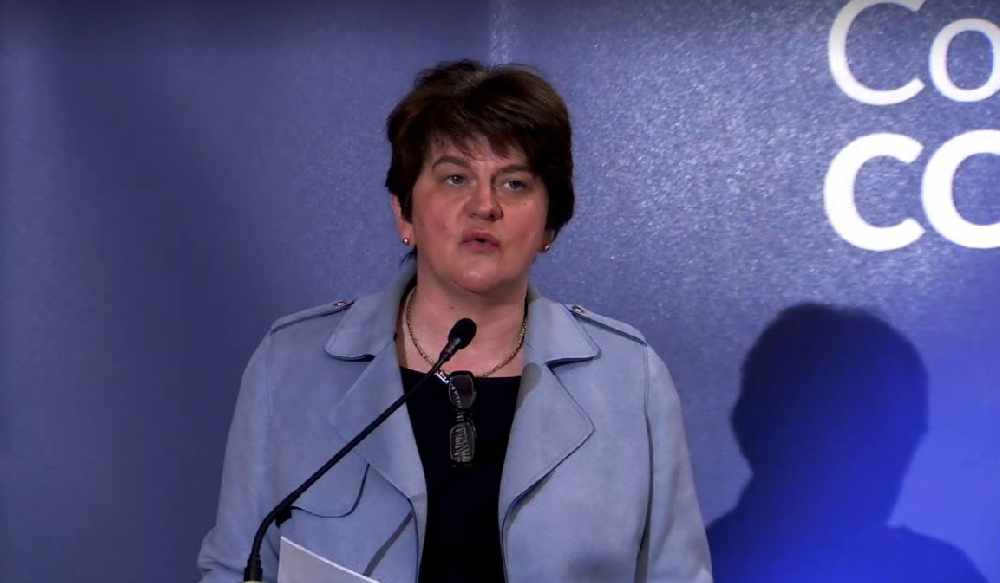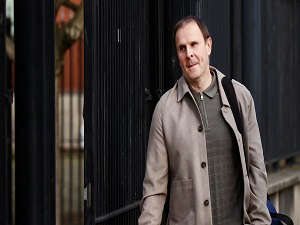
By Rebecca Black and David Young, PA
Taking no action to stem an increasing surge of Covid-19 would have been an “abdication of responsibility”, Northern Ireland’s health minister has said.
Robin Swann said the virus could not be allowed to “rip unchecked” across the region, adding there was “no feasible alternative” to further restrictions.
Business leaders have been speaking out after seeing the evidence used by ministers to decide to close down sections of the economy.
The scientific paper predicted the moves would have a low to moderate impact on transmission rates, but would have a high economic impact on workers.
It estimated the closure of hairdressers and beauticians could reduce the virus’s reproduction number (R number) by 0.05. while the closure of pubs and restaurants could decrease R by between 0.1 to 0.2.
Mr Swann described the situation as “grave”, saying that within days Northern Ireland will exceed the highest number of hospital admissions experienced in the first wave of the pandemic.
“Restricting human contacts is a proven way of fighting back at Covid-19,” he told a press conference at Stormont.
“If we are not going for a full lockdown then restrictions have to be targeted, however complicated that may be, because I have yet to see any real or feasible alternatives to the action that we are now taking.”

First Minister Arlene Foster said she understands the concerns of businesses, but said doing nothing was “not an option”.
“It’s important that this time-limited intervention is just that, a time-limited intervention, and that we can come back together again to look at how we move forward after hopefully we have pushed the R number down below one,” she said.
Chief scientific adviser Professor Ian Young urged people to “look at the totality of the evidence”.
Prof Young described the R number as at 1.4, and said it needs to fall “to at least 0.9 and preferably 0.7”.
In that context, 0.05 is 10% of the R reduction ministers are trying to achieve and 0.2 is 40%.
“Individual interventions may have a small impact on R but we need to take all of the interventions we can get because it is the collective impact which is going to count,” he said.
“Small changes in R are really important as we try to combat the course of this epidemic.”
Mr Swann also expressed concern that 83 care homes have confirmed Covid-19 outbreaks.
He said we “cannot throw a ring of steel around homes”, adding that “quality of life must be balanced with protection of life”.
Mr Swann said efforts were being made to secure pay increases for care workers and also announced plans for an additional £27 million of funding for care homes.
Five further Covid-19 linked deaths and 1,039 new cases were reported by the Department of Health on Wednesday.
There are currently 289 patients with Covid-19 being treated in hospital, with 32 in intensive care.
The data on the impact of business closures is contained in a scientific paper that guided the Executive’s recent decisions on the introduction of the circuit-break.
The paper was published on Tuesday as part of an initiative by the Department of Health to increase transparency around the decision-making process.
Last week, close contact services such as hairdressers and beauticians were among a range of businesses required to close until November 13.
While the Executive paper said closing close contact services would have a low impact on Covid-19 transmission – potential reduction in R by 0.05 – it said it would have a high social and economic impact, warning it would disproportionately affect low-income workers and women.
Belfast hairdresser Sean Lawlor, who owns the Cambridge Barbershop in the city, said: “My message to our leaders is – why did you shut us down when you had this evidence?”
Other steps that would have had a greater projected impact on R, such as the closure of churches (estimated reduction of R of 0.1), were not taken by the Executive.
The paper’s advice that the current closure of bars, pubs, cafes and restaurants is likely to have a “moderate impact” – reducing R by between 0.1 and 0.2 – referenced multiple “anecdotal reports” of outbreaks linked to bars in the UK and beyond.
The paper said a curfew, which ministers introduced last month, is likely to have a “marginal impact”.
In terms of the non-Covid impact, the paper again warned of a high impact caused by a loss of income for hospitality workers.

Simon Hamilton, chief executive of business representative body Belfast Chamber, called the evidence “flimsy” and said the paper poses “massive questions” for the Executive.
Colin Neill of Hospitality Ulster said the industry feels it has been “vilified”.
Emma Bricknell, owner of Made In Belfast, told the PA news agency: “We’re done, I fear losing the company now.
“We have very little money to pay wages, can’t pay suppliers, it is a living nightmare.”
Later on Wednesday Mr Swann revealed he was self-isolating after coming in contact with someone who tested positive for Covid-19.
DUP MLA Pam Cameron and UUP East Belfast MLA Andy Allen are also self-isolating after receiving alerts via the StopCovidNI app that they had been in close contact with a confirmed case.
Ulster Unionist John Stewart tweeted on Wednesday evening that he has tested positive for the virus.


 Woman assaulted while jogging in West Belfast
Woman assaulted while jogging in West Belfast
 Leading loyalist Winston Irvine sentenced to 30 months for firearms offences
Leading loyalist Winston Irvine sentenced to 30 months for firearms offences
 Rescue operation to free 40 cows after lorry overturns on motorway
Rescue operation to free 40 cows after lorry overturns on motorway
 New date set for trial of former DUP leader Jeffrey Donaldson and wife
New date set for trial of former DUP leader Jeffrey Donaldson and wife